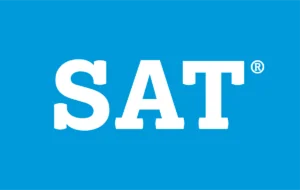In today’s highly competitive college admissions landscape, academic excellence is often at the forefront of application evaluations. With universities receiving an overwhelming number of applications each year, distinguishing oneself academically becomes a pivotal part of the process.

✅ AI Essay Writer ✅ AI Detector ✅ Plagchecker ✅ Paraphraser
✅ Summarizer ✅ Citation Generator
Key Takeaways
- A high GPA, such as 3.8, and taking several AP courses can bolster a student’s chances for top universities, but they are not the sole criteria for admission.
- Beyond academic accomplishments, unique stories, extracurricular activities, and personal experiences play a pivotal role in the college admissions process.
- While GPA is undeniably important, some prestigious universities prioritize other factors, emphasizing a holistic approach to evaluating applicants.
A student’s Grade Point Average (GPA) stands as a testament to their consistency and commitment throughout their high school journey. Meanwhile, Advanced Placement (AP) courses not only provide an opportunity for students to delve into collegiate-level content but also act as a benchmark for their ability to handle challenging academic tasks. But how important is a high GPA, and what role do AP courses play in the college admission process?
To understand this we found a discussion on Quora that dug into the situation of one specific student.
“My GPA is 3.8, and I have taken a total of 7 AP courses. Is that enough to gain admission to a top 50 university? My dream school is UCI.”
College Dreams: GPA, AP Courses, and Beyond
Many people dream of getting into top universities, and often wonder, “How important is my GPA?” Well, let’s dive into some insights shared by Quora users and specialists.
Firstly, is your GPA weighted or unweighted? This distinction matters. A weighted 3.8 GPA might not give you a great chance at top 50 schools, but if it’s unweighted, there’s hope. As some have pointed out, “GPA is not the only thing universities look at.” It’s essential, yes, but it’s just the beginning.
UC Irvine (UCI), a sought-after university, has become quite competitive recently. It’s worth noting that their acceptance rate has fallen sharply, with many attributing this to the rise in popularity of other top-ranked UC schools. Surprisingly, around 50% of accepted students at UCI had 9 or more honors or AP courses. However, even with high stats, university selection isn’t purely black and white. Some Quora users suggest:
“Being the first in your family to go to college, or picking a unique major, can boost your chances.”
But what about those with GPAs that might be seen as lower? Should they lose hope? One uplifting viewpoint was,
“The most successful people in life are unrealistic. They know their strengths and stand out. Maybe you’ve done incredible volunteer work or supported your family. Show that in your essays.”
Another practical approach is considering community colleges, which might offer better odds for later transfer to desired universities.
Moreover, while grades and courses are significant, so are extracurriculars. As specialists advise,
“Show how you are that unusual candidate who should be granted access to UCI. Maybe it’s because you decided to passionately pursue volunteering activities outside of grades— or supported your family with a job. Focus on developing strong activities outside of class and write compelling essays to explain yourself..”
Also, some highlighted the importance of subjects like math, suggesting it’s a strong indicator of future success.
So, while aiming for that dream university, remember it’s not just about numbers, but about your unique story and experiences. Your journey is more than just a GPA.
What Surveys Say About The Role of GPA in College Admissions
The GPA, or Grade Point Average, is a reflection of a student’s academic performance throughout high school. Colleges undeniably look at a student’s GPA during the admission process. The question often arises: how crucial is this number? The significance of GPA varies from one institution to another. Generally, students who maintain strong academic records throughout high school can expect admission offers from multiple colleges.

But let’s delve deeper. There are two types of GPAs: unweighted and weighted. An unweighted GPA is the traditional system, where grades range from 4.0 for an A to 1.0 for a D. To recognize the effort in challenging courses like APs, schools introduced the weighted GPA, where an A in an AP class could be worth 5.0 points. This variance between high schools in grading can be problematic for colleges trying to compare applicants. Thus, many colleges standardize GPAs to maintain fairness. According to NACAC (National Association for College Admission Counseling), many high schools use weighted GPAs, and to address the inconsistency, over half of colleges recalibrate these GPAs.
What importance do colleges attribute to GPAs? Though many parents and students hold the GPA in high regard, some colleges view it differently. Surprisingly, some institutions, like the University of Virginia and Swarthmore College, don’t prioritize GPAs. However, research reveals that high school grades are a reliable predictor of college success. NACAC’s annual surveys indicate that while GPAs are considered, they rank fourth in importance in the admission process.
The Main Point
Although the GPA is a significant measure of academic achievement, it’s not the sole determinant in college admissions. Colleges value well-rounded students, seeking those who excel both academically and in extracurricular activities, ensuring a holistic approach to student selection.
Follow us on Reddit for more insights and updates.





Comments (0)
Welcome to A*Help comments!
We’re all about debate and discussion at A*Help.
We value the diverse opinions of users, so you may find points of view that you don’t agree with. And that’s cool. However, there are certain things we’re not OK with: attempts to manipulate our data in any way, for example, or the posting of discriminative, offensive, hateful, or disparaging material.